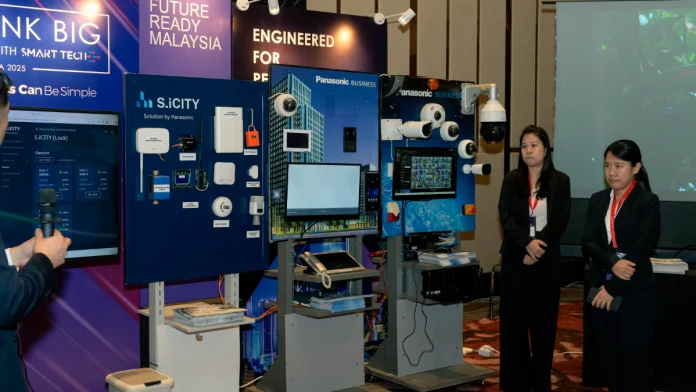ARTIFICIAL intelligence (AI) is often described as a technology for global corporations, but industry observers emphasised that AI is already entering everyday Malaysian life, shaping tasks that once felt slow or manual.
“We have to constantly keep up to speed, continue to push the boundaries and ensure that every move we make will benefit Malaysians and Malaysia. Set timelines, make realistic goals and together we can turn Malaysia into an AI nation by the year 2030,” said MyDigital CEO Adrian Marcellus on behalf of Digital Minister Gobind Singh Deo at the Think Big Klang Valley Series hosted by Canon Malaysia 2025 last Wednesday.
Much of the forum focused on invisible processes that AI can improve. Smarter digital workflows, automated document handling and predictive maintenance for essential office tools determine how quickly Malaysians get served at clinics, banks, tuition centres and service counters.

How AI quietly improves daily life, services
AI is increasingly present in the tools and systems Malaysians interact with, often without realising it. Demonstrations at the event showed how these technologies work quietly in the background to keep services running smoothly and make daily tasks easier.
For businesses, AI supported systems can monitor equipment health, detect issues before breakdowns happen and log power interruptions. These features help clinics, tuition centres and service counters avoid disruptions that would usually inconvenience customers.
Document management systems were also shown separating mixed files, recognising handwritten text and routing approvals automatically, reducing processing time and the likelihood of misplaced paperwork.
At home, Canon’s collaboration with Panasonic highlighted how AI-powered cameras, sensors and light detection, and ranging technology can support fall detection, elder care and general safety.
Other Internet of Things-based solutions allow residents to unlock doors remotely, receive visitor calls on their phones and view real-time footage even when they are away. These features offer a glimpse of how smart home functions may become more common in Malaysian households.
Together, these technologies illustrate how AI is quietly supporting safety, convenience and efficiency across public services and home environments.

Safer digital interactions, smoother, faster service
More AI adoption also means greater responsibility.
Malaysian Institute of Microelectronic Systems Bhd (Mimos) chairperson and Microsoft Asean public policy and government affairs lead Jasmin Begum used a simple analogy to highlight the need for consistent safeguards.
“You cannot just put a lock at the front of the house but your back door is open,” she said.
For consumers, stronger governance means better protection of personal information and more reliable digital platforms.
The forum made it clear that AI will not change Malaysia overnight. Instead, it will introduce steady improvements in reliability, speed and convenience across services people use daily.
For Malaysians, the impact will be simple. Fewer delays. Fewer repeated forms. Smoother interactions. Services that feel more responsive.
AI may be complex behind the scenes, but its everyday benefits are straightforward. Better service. Better speed. Better outcomes.








